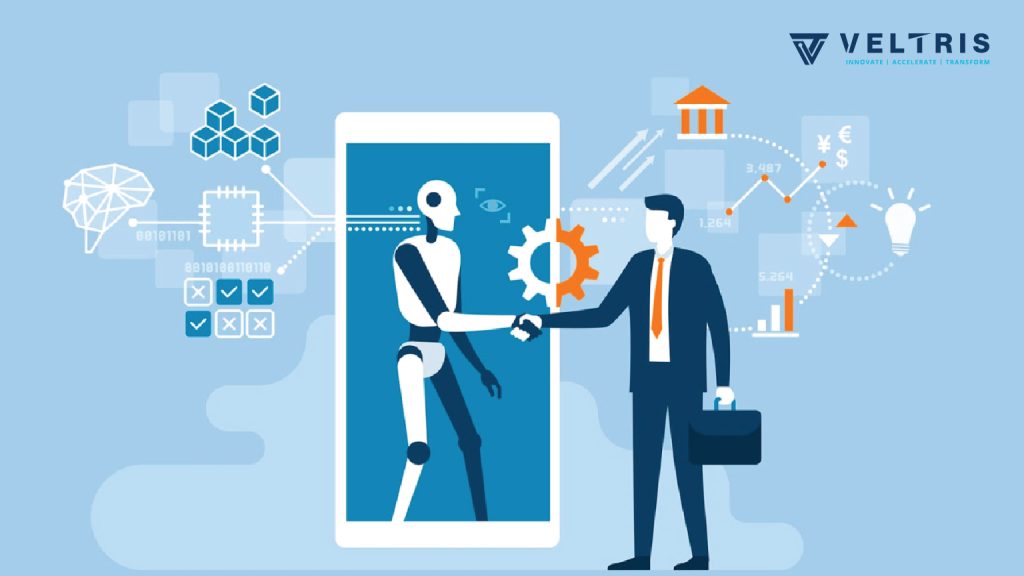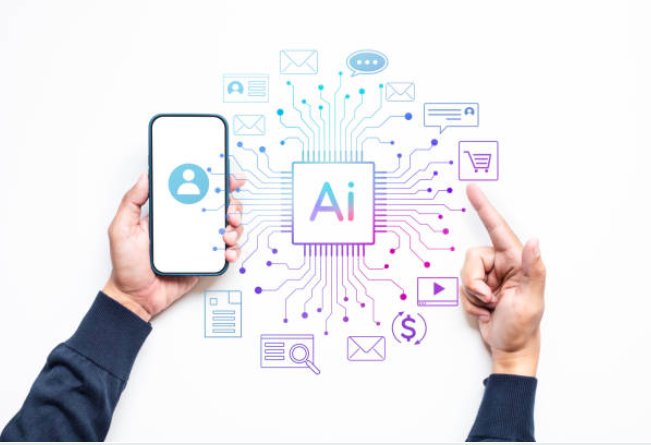Artificial intelligence, known as AI, is a tool designed to improve the user’s experience online. AI has qualities that have been deemed revolutionary as it can enhance the social media functionalities. For example, it creates content to the users preference, correcting their algorithm to suit them, it finds and produces content that it knows the user will enjoy based on previous interests, and it can identify patterns, trends and key information that will improve the user’s experience (Suresh, 2024). AI can impact what the user sees through real-time personalization systems that enables AI to adjust the content, depending on the amount of attention the content is receiving. This technology has been deemed useful for brands as content can be tailored to individuals who are interested. The knowledge within AI is also able to construct ideas/content that brands would not be able to curate. This therefore makes social media more personal experience as users receive content that truly resonates with them.
It is well known that AI’s resources are beyond impressive to the human mind but this did not stop ethical concerns being raised, especially regarding privacy and data security (UNESCO, 2023). Voice assistant technology, for instance, has made some users uncomfortable by passively listening in the background, which has led to questions about whether AI is ethical and trustworthy (Buxton, 2024). As society evolves, AI will continue to develop, offering even more impressive elements, and shaping future social media engagement. This tool is continuously working to make online experiences unique and personalized for users, as well as push the boundaries of digital interaction.

AI in Social Media:
Opportunities are given to brands that incorporate AI into their everyday as it poses as an advantage for their positioning. AI can enhance a brands social media presence and drive more awareness to what they offer. To complete this, AI works to identify optimal posting times, while providing high quality content to ensure users keep scrolling (Muchhala, 2024)
It is very common among social media platforms to use AI to gauge what their users are interested in. As a recent article by Statista (2024), found that 63.8% of the world’s population are social media users, this highlights the importance of AI in monitoring the individual preferences in order to produce relevant content that persuades the user to stay on the platform (Schoppa, 2022).
Artificial Intelligence In Predicting User Behaviour:
This tool has positive implications for brands, allowing their marketing strategies to improve by identifying trends that users seek and intentionally target this segment. As AI monitors posts, comments and user reactions, brands can utilize AI by collecting the data found and creating promotions that are effective and are not wasted (Miller, 2024).
The evolution of AI in brand marketing approaches has been very potent as it allows for more unique opportunities to connect with their audience as well as adjust their campaigns to make it more suitable. Through AI, brands can promote themselves in a manner that feels natural and coincidental to the user. Brands also leverage AI to tailor messages, content, recommendations, and product suggestions based on user likes and dislikes which helps maximize user satisfaction. This type of personalization allows the brand to gather stronger engagement rates, boosting the likelihood of more recognition (Sullivan, 2024).
Brands can utilize AI to optimize posting times, content formats, and audience targeting by analyzing user demographics, past engagement, and behavior to identify the ideal audience segments. It then delivers tailored content to each segment, adjusting the type of post, tone, and messaging to resonate with each group’s preferences (Lange, 2024). The use of AI on social media poses an opportunity for brands to benefit from its unique set of qualities.

AI for Trendspotting:
In today’s fast-paced digital world, it can be challenging for brands to keep up with trends. Staying ahead of social media trends is crucial for brands aiming for success, and this is where artificial intelligence transforms the game. AI offers unmatched precision in predicting social media trends, enabling brands to stay ahead of the curve (Kaylin AI, 2024). By analyzing vast amounts of data, AI can identify patterns in user behavior, making its predictions even more accurate (Kaylin AI, 2024).
Trendspotting is an element of AI that it is very good at identifying. The continuous scanning and analysis of the market data, social media, and external sources supports the finding of emerging trends and can determine the impact it might have on users. Brand comparisons can also be conducted which provide variety in content for users (Holtzclaw, 2024).
Personalization and User Experience:
The use of AI enhances personalization and elevates the user experience. With the analyzation of user data, AI can locate algorithms, identify patterns, and make predictions about user behavior, preference, and needs. This enables brands to create personalized experiences for each user, such as targeted ads, product recommendations, and personalized messages (Mehta, 2023).
Using AI can also encourage user satisfaction to increase as well as brand loyalty. With personalized content comes stronger relationships that can be built with users as personalization is very valuable. Overall, AI has perceived benefits that have a positive impact on users, encouraging them to keep engaging with the content. As long as AI continues to evolve, it is likely that marketers seeking to create personalized experiences will turn to AI (Mehta, 2023).

Chatbots also generate user experience and satisfaction by working seamlessly with AI to make online platforms more user-friendly. They provide instant responses to user questions, decreasing wait times and increasing overall satisfaction, which helps companies stay competitive in today’s fast-paced market. Quicker response times mean users don’t have to wait for assistance, contributing to a more positive experience (Analytix Labs, 2023).
Conclusion:
To conclude, AI has shown to be a worthy component for social media and the brands within, providing personalization tools and an evaluation of user behavior. This helps brands reach their targeted audience as well as provide tailored content to keep satisfaction rates high. With real-time trendspotting and focus on content timing, format, and delivery, brands can be reassured that users remain engaged. Features such as chatbots and recommendation algorithms improve the overall experience. Though, despite its best efforts to keep everyone content, ethical concerns have been highlighted causing uncertainty from the users, this will need to be spoken on as AI technology improves. With this being said, social media should keep up to date with AI to continue improving engagement strategies to remain competitive. This will lead to new opportunities for the platform and determine whether they are successful in the evolution of the digital industry.
References:
AnalytixLabs. (2023). Chatbots and virtual assistants: Enhancing customer engagement in marketing. Medium. https://medium.com/@byanalytixlabs/chatbots-and-virtual-assistants-enhancing-customer-engagement-in-marketing-3994153688ca
Buxton , O. (2024, September 9). Is my phone listening to me? yes – here’s why and how to stop it. Norton. https://us.norton.com/blog/how-to/is-my-phone-listening-to-me
Devin. (2024 June 17). The Power of AI in Predicting Social Media Trends. Kaylin AI. The Power of AI in Predicting Social Media Trends | Kaylin AI – Social Media Manager
Holtzclaw, E,C. (2024 July 17). Predictive Marketing with AI: Staying Trendy and Ahead of the Curve. LinkedIn. Predictive Marketing with AI: Staying Trendy and Ahead of the Curve | LinkedIn
Lange, C. (2024 November 11). Engaging Audiences with AI-Driven Social Media Marketing: The Future of Brand Loyalty. Medium. Engaging Audiences with AI-Driven Social Media Marketing: The Future of Brand Loyalty | by Charles Lange | Nov 2024 | Medium
Mehta, J. (2023 November 18). The role of artificial intelligence in personalized marketing. ABMATIC AI. The role of artificial intelligence in personalized marketing
Miller, S. (2024, August 21). 5 AI strategies for predicting the future of Social Media. Social Mention. https://www.socialmention.com/predicting-social-media-trends-with-ai/
Muchhala, D. (2024, September 30). The Role Of AI In Social Media Content Creation. Pepper Content. The Role Of AI In Social Media Content Creation | Pepper Content
Petrosyan, A., & Statista. (2024, November 5). Internet and social media users in the world 2024. Statista. https://www.statista.com/statistics/617136/digital-population-worldwide/
Schoppa, C., Writer, A. S., & Russo, M. (2022, December 30). How the 5 biggest social media sites use AI. AI Time Journal – Artificial Intelligence, Automation, Work and Business. https://www.aitimejournal.com/how-the-biggest-social-media-sites-use-ai/
Sullivan, E. (2024, September 11). 6 ways brands are leveraging AI in marketing. Tinuiti. https://tinuiti.com/blog/marketing/6-ways-brands-are-leveraging-ai-in-marketing/
Suresh, A. (2024, August 6). 10 ways to use AI in Social Media. Sprinklr. https://www.sprinklr.com/blog/ai-in-social-media/
UNESCO. (2023, April 21). Artificial Intelligence: Examples of ethical dilemmas. UNESCO.org. https://www.unesco.org/en/artificial-intelligence/recommendation-ethics/cases
